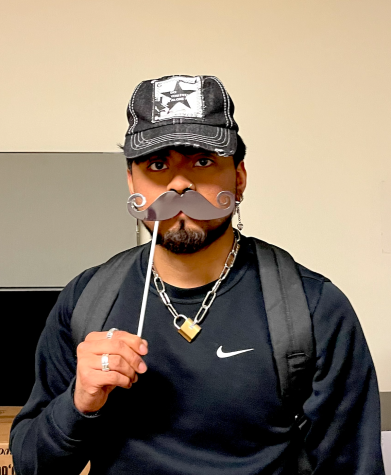Trinity expands sexual health resources offered
Health and Wellness Center begins using new partnerships and tools for sexual health
With Valentine’s Day right around the corner, it’s a good time to know where to find different sexual health tools. The Health and Wellness Center (HWC) at Trinity offers many sexual health resources for Trinity students, the amount of which continues to grow with partnerships and the possible implementation of “health and wellness vending machines.”
The HWC is devoted to providing adequate sexual healthcare to students. They strive to constantly improve upon their services, and interact with other universities to do so, according to John Meyer, family nurse practitioner with HWC.
“Trinity University Health Services is a participating member of the American College Health Association, and we do learn from other universities’ sexual health services,” Meyer said.
Alongside influences from the American College Health Association, students’ opinions and needs help determine what the HWC provides. Marcy Youngdahl, director of integrated counseling and health services and physician at the health center, explains that this process occurs through surveys.
“Remaining up to date with the needs of our campus means that we will always seek to refine our services. We [are] conduct[ing] the National College Health Assessment Survey this March, which will survey all students regarding their [general and sexual] wellness … needs,” Youngdahl said.
The HWC is taking other steps to expand, like the upcoming “Sex Week” from Feb. 13-17, which includes a variety of different activities.
“Sexual health education is so important but … can often feel awkward and taboo, so we will be hosting a variety of events, which we hope will be informative and fun,” Youngdahl said.
Sex Week will also include one of HWC’s new partnerships, the San Antonio AIDS Foundation (SAAF). On Feb. 16, SAAF will begin the first of many visits to campus.
“The SAAF mobile testing unit will come to campus to offer free HIV, syphilis, chlamydia and gonorrhea testing to students,” Youngdahl said. “We are aiming to have them on campus twice per month for the duration of the semester.”
This isn’t the first time HWC has partnered with an outside company, either. Betty’s Co., a mobile gynecology clinic, has been working with HWC since December.
“We felt the need to improve access to all forms of contraception on campus,” Youngdahl said. “We are very happy to be able to offer students easy access to long-acting reversible contraception including Nexplanon, Implanon and IUDs.”
There is another expansion to HWC services in the process: the health and wellness vending machines. These vending machines are set to include resources like rapid COVID tests, bandages, over-the-counter medication and sexual health tools, like condoms, dental dams and “Plan B” pills. These vending machines prioritize availability and comfort, Meg McDonald, senior ancient Greek and ancient Mediterranean studies double major and the president of the pro-choice club explained.
“[These] health and wellness items … would be more confidential and available outside of normal business hours,” McDonald said.
However, the vending machines aren’t set in stone. There are possible issues with the vending machines, as Youngdahl warns, but now all we can do is wait.
“There are many logistical issues that still need to be addressed, but we have now gathered enough information for the executive leadership team to review and determine whether this is a safe and sustainable project for the campus,” Youngdahl said.
HWC’s existing services fall into two major categories: preventative services and problem-focused services. The preventative services offered by the HWC include the human papillomavirus (HPV) vaccine, pap smears, sexually transmitted infection (STI) screening, contraceptive counseling (in which they offer they offer prescriptions for the pill, the patch, Nuvaring, DepoProvera) and human immuno-virus (HIV) care.
On the problem-focused side, physicians offer assessments and treatments for different issues, including STIs.
However, students have to look outside the HWC for some services. In the case of a student in need of a birth control implant or intrauterine device (IUD), for example, the physicians at the health center will refer them to outside specialists. The reason for outsourcing these services, Meyer explains, is for the benefit of the student.
“I want student[s] that need [these services] to get the best quality care available, therefore I would refer my patient[s] to a clinic that provides this special care all the time and is good at it,” Meyer said.
The need for sexual health resources in colleges is relevant, as college-aged students have the highest risk of STIs and half of the population contracts researchers at the University of Iowa. Students can utilize the resources that Trinity has in place currently while waiting for the privacy of the vending machines.
If students feel more comfortable initially talking to a peer, McDonald encourages students to come to Trinity’s pro-choice club with sexual health issues.
“[TU pro-choice’s role is] to share [sexual health] information and make sure that we can inform people of the things they have access to, … help[ing] with any sort of questions about whether or not the resources on campus are available and when,” McDonald said. “TU pro-choice is always a welcome call. … We’re happy to point you in the right direction.”
Reaching out for sexual health reasons can be intimidating, but Youngdahl reassures students that there’s no reason to worry about going to health services.
“We are a low-cost and confidential clinic. We adhere to strict medical privacy standards. Our staff are all declared confidential resources under Title IX. We recognize that this is often the first time that students are utilizing medical care without parental support and we recognize that it’s really uncomfortable for most people to talk about their sexual health,” Youngdahl said.
The services offered at Trinity are in place for students to use, and Meyer echoes Youngdahl’s sentiment about being welcome to ask for help.
“We deal with these problems all the time and are accustomed to speaking with our patients in plain language about sex,” Meyer said. “Please come see me if you have a weird drainage coming out of your penis. I can help.”

Hi! My name is Samara Gerstle (she/her), and I’m the managing editor of the Trinitonian. I’m a junior English major with minors in creative writing...

Whattup! My name is Skylar Savarin (she/her/hers), and I am the Visual section editor! I am a third-year double majoring in Human Communication and Art....












